Remembering the disappeared in Mexico
MCC worker Bethany Renata Loberg reflects on her experiences accompanying relatives of disappeared people in Mexico.
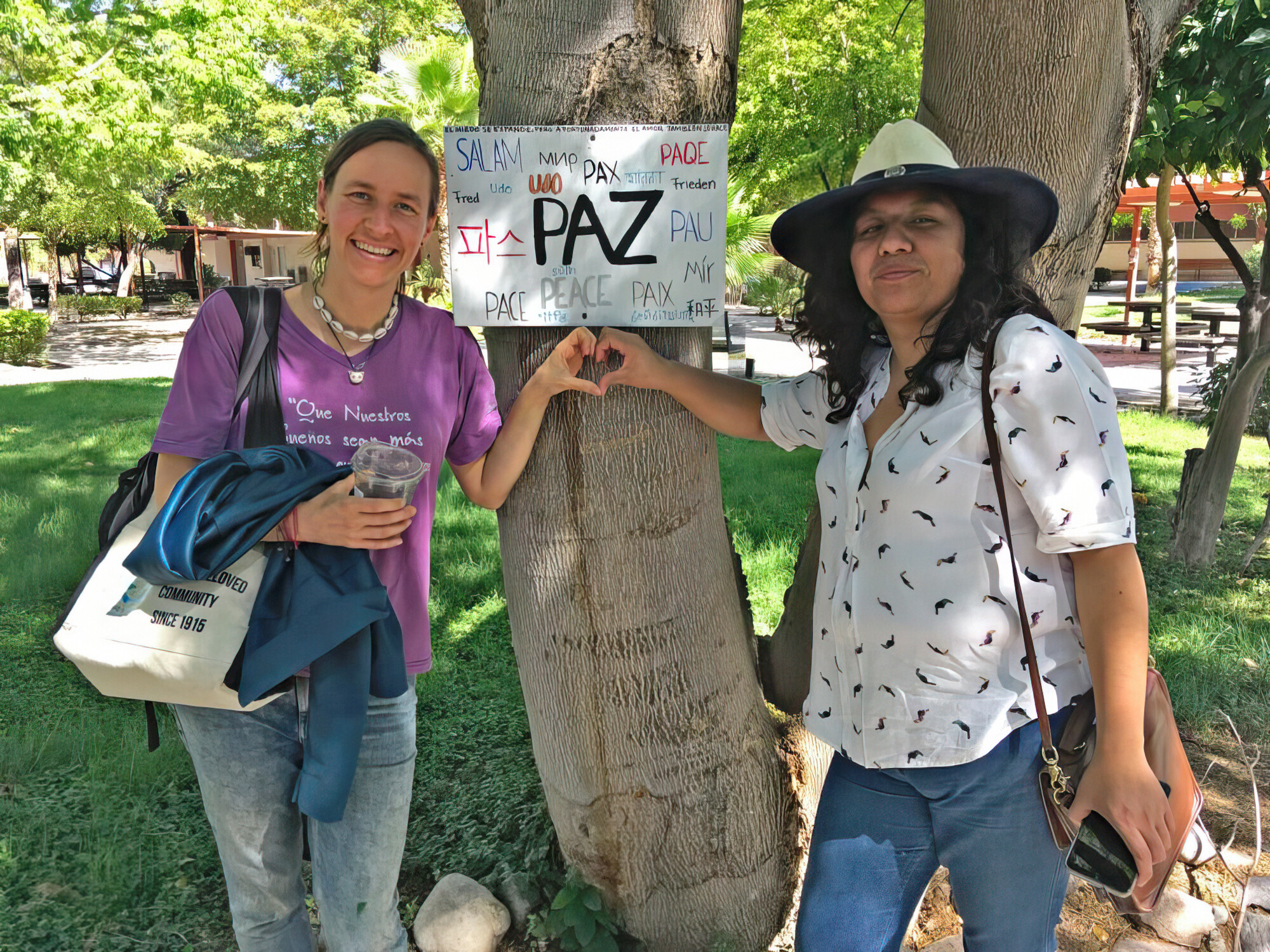
On the morning of May 10, 2022, Mother’s Day in Mexico, women and some men of many ages, all wearing T-shirts featuring the face of a loved one who has disappeared, gather in the city of Veracruz, in the Mexican state of Veracruz.
They begin placing photos and banners with the faces of their loved ones along the sidewalk. While they greet each other with smiles and even laughter, deep sorrow marks their faces and haunts their eyes.
In the last 10 years, this has become a day when families of the disappeared take to the streets, lifting their voices to shout their pain, their love, their hope, their longing to know where their loved ones are. They shout for truth, for justice.
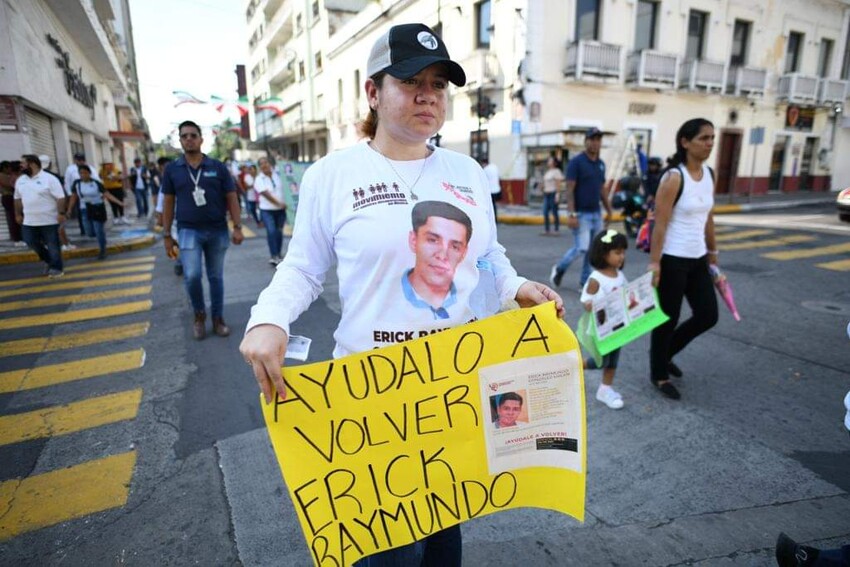
To be disappeared is to go missing, often taken and potentially killed by government security forces or by armed, organized crime groups. According to official records, more than 110,000 people are registered as disappeared in Mexico, 98% of them since 2006. And that’s a limited figure. For fear of retaliation, many families do not report disappearances. The real number could be double or more.
The constant, internal questions — Where is my son, my daughter, sister, brother, husband, wife, niece, nephew? Has she eaten? Is he ok? — torture the relatives of the disappeared. As the number of disappeared people grows, more and more relatives have formed locally based, organized groups called collectives, as well as national networks, including the Movement for Our Disappeared in Mexico (MNDM).
In August 2021, I moved to Xalapa, also in the Mexican state of Veracruz, to serve with MCC as a promoter for truth, justice and the issue of disappearances, within partner organization SERAPAZ (Servicios y Asesoría para la Paz, or Consulting Services for Peace).
My work includes accompanying collectives in the state of Veracruz in advocacy and awareness initiatives, co-leading trainings and collaborating with co-workers to facilitate the national-level work of the MNDM.
I also accompany events that collectives organize on significant dates, including Mother’s Day.
So, on this May morning in 2022, I move with the group, and Lidia, one of the leaders, hands me one end of a banner to carry. We start to walk, Lidia and others initiating chants that reverberate through the crowd:
“They took them alive, we want them back alive!”
“If the people came together, and united as they should, the powerful would tremble from the heavens to the earth.”
“Join us, join us, it could be your son.”
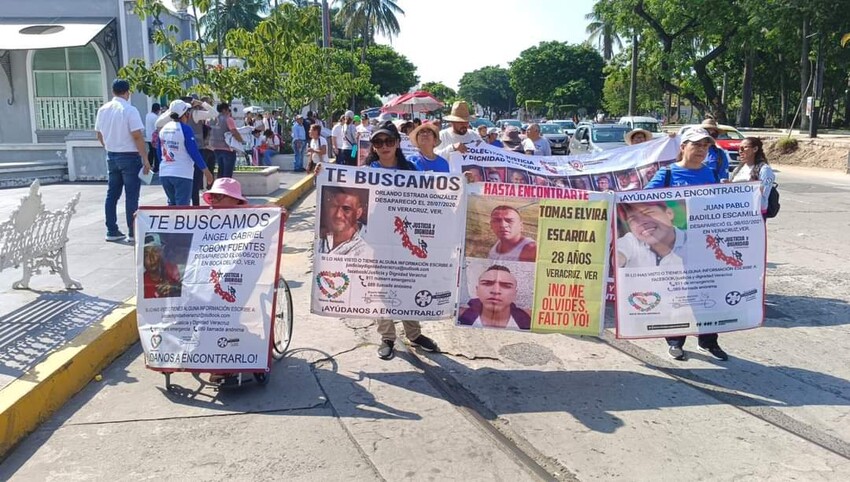
Some onlookers stop to read the signs and banners; others continue their daily activities without looking.
Forty-five minutes later we arrive at the Venustiano Carranza lighthouse. Everyone lays out their banners and photos in the plaza and gathers in a circle.
Leaders read out the names of attendees’ disappeared loved ones. After each name everyone responds together, “Present, today and always.”
During an open mic time, a father, Jesús, tells the crowd that for many years he and his wife Yolanda searched together for their disappeared daughter. Now, Yolanda has passed away and Jesús declares his dedication to continuing the search and struggle in her name. A mother shares that her son disappeared only months ago, and it is deeply painful to experience this first Mother’s Day without him.
The gathering closes with the Lord’s Prayer.
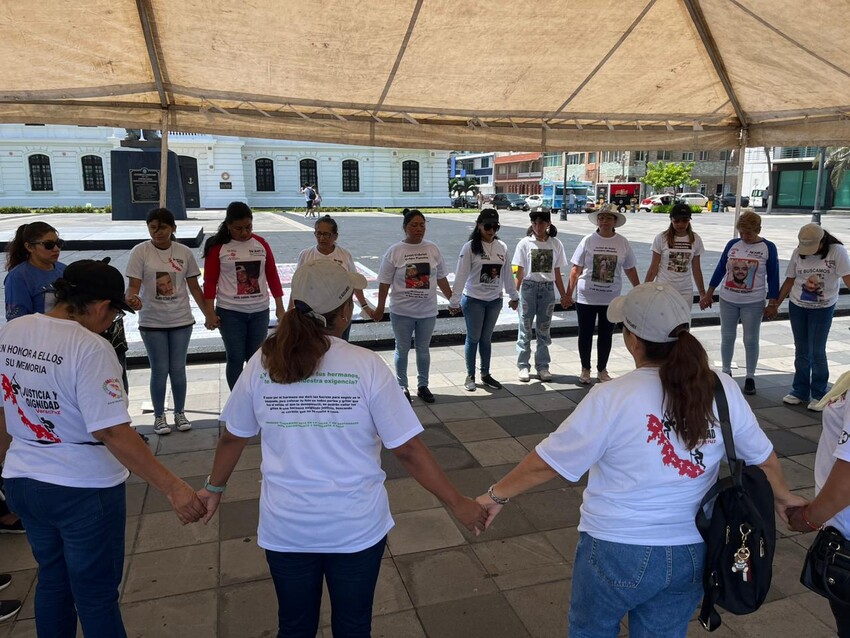
Similar marches take place across Mexico on Mother´s Day, as disappearances have occurred throughout the country, impacting many groups, from political dissidents of the 1960s-80s to female factory employees in the 1990s and early 2000s, and migrants mobilizing internally or crossing through Mexico to the U.S.
In 2006, President Felipe Calderón’s administration started a war on organized crime, with funding and other support from the U.S. But, according to studies by Centro de Investigación y Docencia Económicas, during the Calderón administration, criminal groups grew by 900%, civilian deaths by 2,000% and disappearances skyrocketed. In the 2010s, calls to end the violence grew, especially after the high-profile disappearance of 43 students from a teachers’ college in 2014.
In response, SERAPAZ has made truth, justice and the issue of disappearances one of its three strategic focuses.
Having studied various conflict transformation frameworks at Goshen College and Eastern Mennonite University, it was exciting to find that the organization is collaboratively applying these frameworks to some of the most challenging justice issues in Mexico.
In the state of Veracruz, where I live and work, over 7,000 people have disappeared. A major driver of disappearances here is competition between a murky network of organized crime groups, private companies and public officials for lucrative oil and gas exploitation and infrastructure contracts.
At the same time, for many, the depth of both their pain and love has activated a resolve and resistance greater than they knew they possessed.”
Bethany Renata Loberg
Within this challenging context, I am continually humbled by working with relatives of the disappeared. Most were not politically active before their loved ones were ripped from their lives. Now, they assert their rights and dignity in the face of powerful systems that have snatched their loved ones from them and do not want them to be found.
These systems seek to wear down and even to silence the relatives of the disappeared. Their trauma manifests in profound grief, sleepless nights, jaws clenched so tight they lead to cracked teeth. Families become splintered, lives completely reconfigured.
At the same time, for many, the depth of both their pain and love has activated a resolve and resistance greater than they knew they possessed. And in searching they have found one another, a new family that understands their experience and lets them know, in words and actions, that they are not alone. In many ways I believe that the collectives are the prophetic voice in the wilderness, denouncing a culture of death and calling us to honor human life and dignity.
Every ounce of this tremendous, creative force of love is needed to sustain the movement, an endeavor as seemingly impossible as asking a mulberry tree to be uprooted and planted in the sea. Yet in Luke 17:6, Jesus tells us that with faith as small as a mustard seed the mulberry tree will obey.
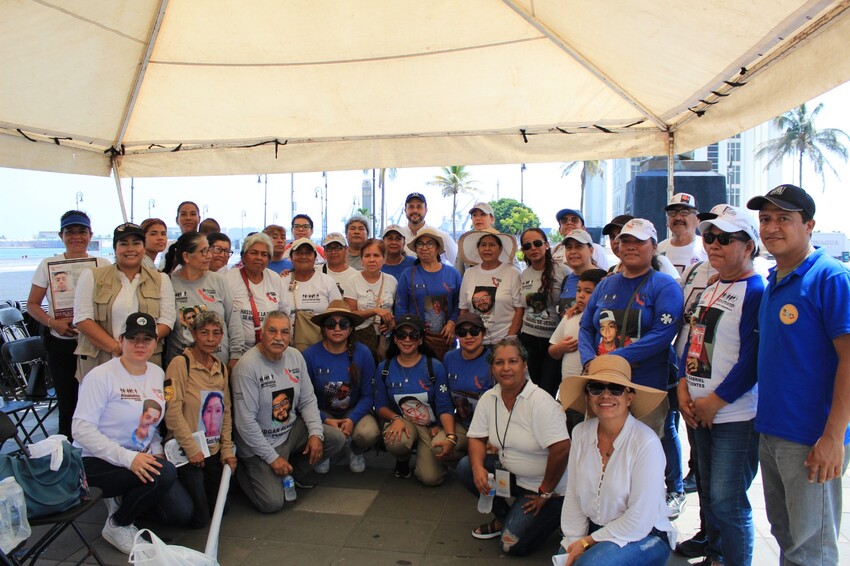
One major fruit of the movement’s work was the 2017 passage of a law that recognized disappearances as a crime and established national search systems. In 2018, at the urging of local collectives, Veracruz was the first state to pass a state-level version of this law. Their efforts have also led to the creation of mechanisms that help to process and identify human bodies found during searches.
Still, addressing and eradicating disappearances in Mexico continues to be an uphill battle. Many families continue to seek answers. And so, they continue to gather, to advocate, to raise their voices.
One moment during the December 2023 gathering of the MNDM exemplifies the depth and interconnection of their pain and love. As I led an opening activity on day three, the families spontaneously chose to form a heart together.
Holding hands, they chanted in unison:
“Why do we search for them?”
“Because we love them.”
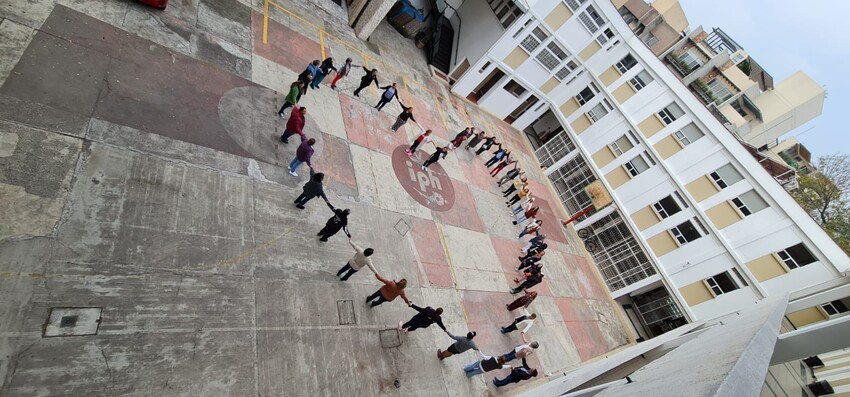
How can you accompany relatives of the disappeared?
International policies, markets, cultures and lifestyles contribute to disappearances and other forms of violence in Mexico.
Per advocacy group Stop US Arms to Mexico, over 70% of the guns confiscated from crime scenes in Mexico were produced in the U.S. Both Canadian and U.S. oil, gas and mining companies have been complicit in the violence.
Here’s how you can help support the prophetic voice of the collectives to honor life and dignity:
Pray for justice for disappeared people in Mexico, an end to disappearances around the world and peace for the relatives of the disappeared.
Advocate for:
- U.S. policies that reduce the flow of weapons to Latin America such as the ARMAS Act. Learn more and send a message to your elected officials here.
- The Canadian government to ensure that Canadian companies operating internationally (including in Mexico) protect people and the planet. Click here to learn more.
- International policies that help relatives of the disappeared find answers on their loved one’s whereabouts and hold those responsible accountable.
Live simply and engage in creation care. Given the close connection to disappearances and oil and gas production, you can help by divesting in oil and gas, opting for sustainable forms of transportation and energy.
Reflect on Scripture (Luke 18:1-8, Luke 13:10-17, Deuteronomy 30:19-20) as it relates to the struggle to end disappearances.
Donate to MCC. Your support helps staff worldwide accompany international partners navigating pressing issues of justice.
Header photo caption: Bethany Renata Loberg, left, stands with Clavel Rojo, a SERAPAZ employee, during a workshop on peacebuilding and conflict transformation in the Mexican state of Sonora. Photo courtesy of Bethany Renata Loberg
Donate where needed most
Your generous donation helps MCC accompany partner organizations like SERAPAZ.

